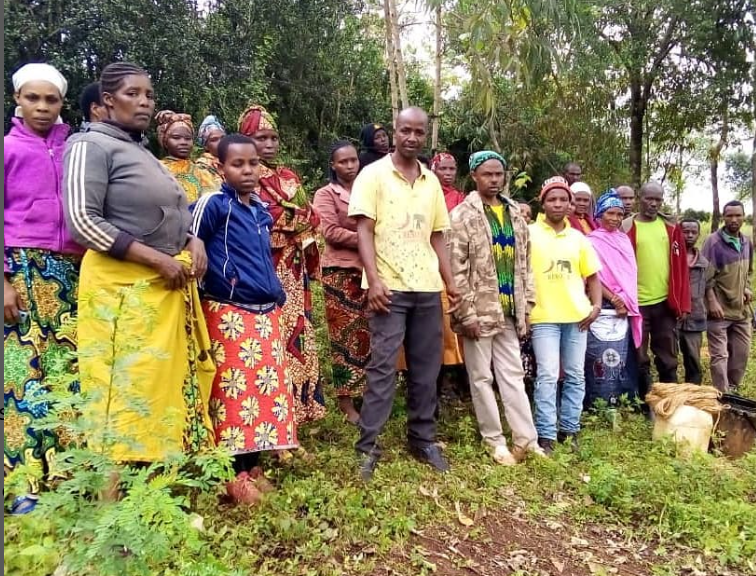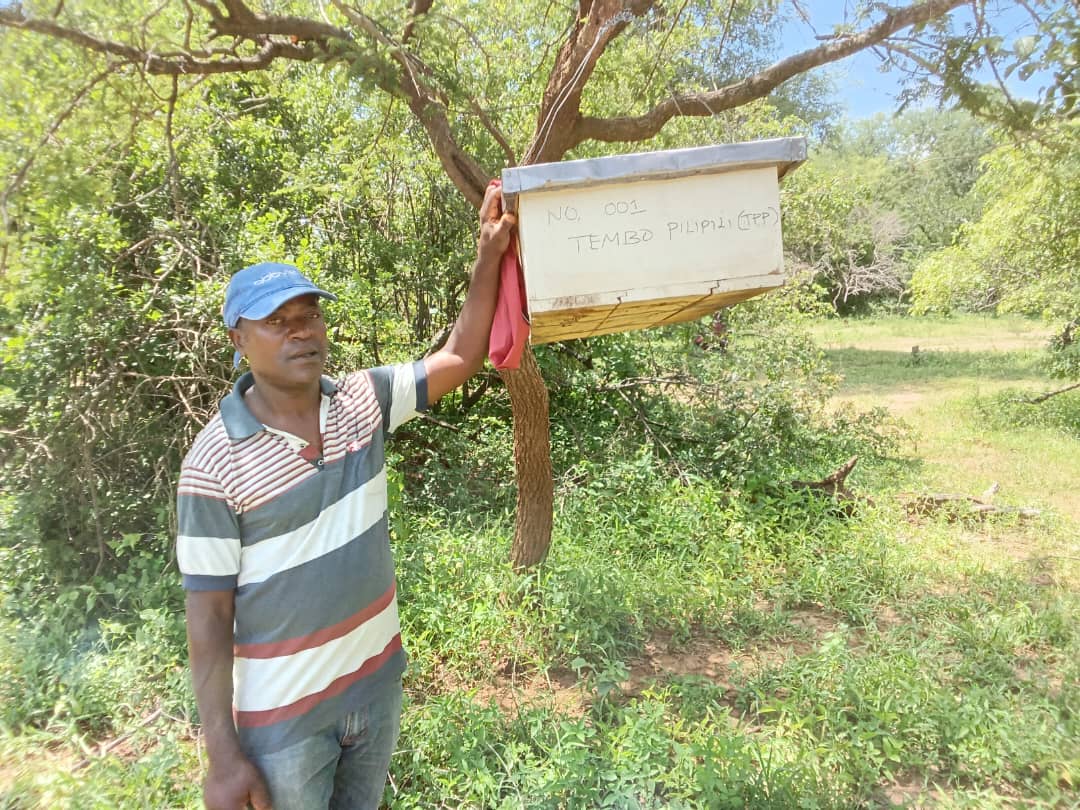Tembo – Pilipili, Mikumi

To improve education and awareness of elephants to farmers in Tanzania, the Tembo Pilipili project in collaboration with the community has established a 6 acre experimental chili farm as a School for Field Training to farmers in Mikumi. The farm is located on the western side of Mikumi National Park in a corridor that connects Mikumi, Udzungwa, and Ruaha National Parks.
Due to its location, there are frequent visits by elephants. The farm will be used to train farmers on humane methods to mitigate human elephant conflict (HEC) using chili fencing and chili briquettes, and training farmers on chili farming as a buffer crop, chili processing and marketing of chili powder to ensure farmers can meet their full income potential.
We are also collaborating with the Tanzania Horticultural Association (TAHA) and the Tanzania Industrial Research and Development Organization (TIRDO) to improve the use of technology in growing, drying, and marketing chili within Tanzania and overseas. TIRDO will help construct new chili dryers in Mikumi Vikweme sub-village, which will be used for drying chili by three CBOs (90 farmers) during the rainy season when chili production is high.
Furthermore, in an effort to bring in additional funding resources to support CBOs, we are working to establish an MOU with the Vision Fund to work with the Tembo Pilipili Project. Since we started the Tembo Pilipili Project, farmers have been requesting funds for purchasing higher quality agriculture inputs and sisal ropes for making chili fences.
The Tembo Pilipili Project has not had the funds in place to support farmers to this extent. Vision Fund has already supported five CBOs in Tarangire, and the MOU will empower CBOs by providing a loan product suitable to farmers who are supported by Tembo Pilipili Project for purchasing higher quality seeds, fertilizer, and materials for elephant mitigation strategies. Vision Fund will share a loan tracking system with Tembo Pilipili project, and train farmers on financial management. The funds will be targeted during the peak of growing and conflict season, when there is particularly high financial hardship due to crops not yet being harvested.
Beekeeping Project for Conservation and Community Development

Beekeeping Project for Conservation and Community Development
As part of our efforts to reduce human-wildlife conflicts, Tembo Pilipili Program has initiated a Beekeeping Project for communities living near wildlife conservation areas. This project aims to support local communities in two key ways:
Providing Economic Opportunities through Honey and Other Bee Products
The project empowers local communities by providing training on modern beekeeping techniques, high-quality honey production, and processing of bee products such as beeswax and propolis. This creates an alternative source of income, enhancing community livelihoods.
Project Objectives
– To mitigate human-wildlife conflicts using beekeeping as a natural and sustainable solution.
-To improve household incomes by promoting honey production and value addition to bee products.
-To promote environmental conservation by fostering eco-friendly livelihoods.
Implementation and Progress
The project has been launched in Doma ward Mkata village,Maharaka village Mvomero District, where community members have begun receiving beehives and training. We aim to expand this initiative to other villages to maximize its positive impact on both communities and wildlife conservation.
Preventing Wildlife Encroachment into Farms and Settlements
Beekeeping has been identified as an effective natural barrier to deter elephants and other wildlife from invading farms. The presence of bees along farm boundaries helps keep elephants away, reducing conflicts between communities and wildlife.